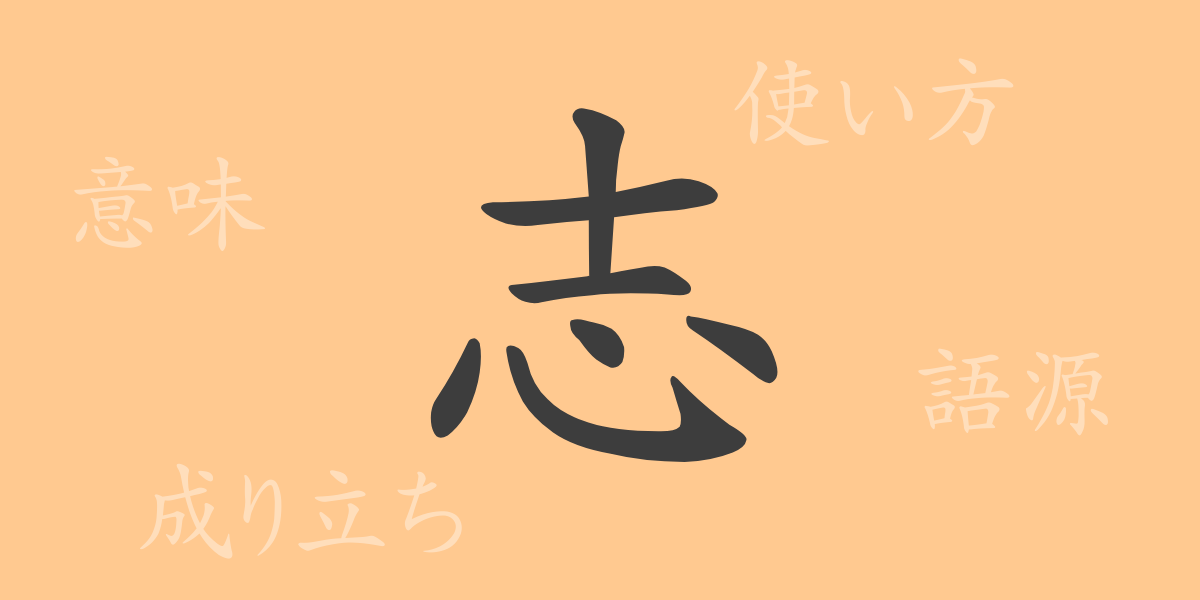Kanji, deeply rooted in Japanese culture, carry rich stories behind their meanings and backgrounds. Among them, “志(こころざし)” is an essential character symbolizing personal will and goals. This article explores the origins, usage, idioms, and proverbs of “志(こころざし)” and examines how it is embedded in our daily lives.
Origins of 志(こころざし)
The kanji “志(こころざし)” originated in ancient China and is composed of “士(し)” and “心(こころ).” “士(し)” originally referred to scholars or gentlemen, and “心(こころ)” represents the heart or emotions. Together, they form “志(こころざし),” which signifies the heart of a scholar, or having high ideals and aspirations.
Meaning and Usage of 志(こころざし)
“志(こころざし)” is frequently used in words such as “意志(いし)” (will), “志望(しぼう)” (aspiration), and “志向(しこう)” (orientation), indicating one’s will, desires, or direction. It also describes a person’s character or traits, as in “高い志を持つ(たかいこころざしをもつ)” (having high aspirations) or “志が固い(こころざしがかたい)” (being steadfast in one’s resolve).
Readings, Stroke Count, and Radical of 志(こころざし)
The kanji “志(こころざし)” has several readings, each carrying different nuances depending on the context.
- Readings: The on’yomi (音読み) reading is “シ,” and the kun’yomi (訓読み) readings are “こころざし” and “こころざす.”
- Stroke count: “志(こころざし)” consists of 7 strokes.
- Radical: The radical is “士(さむらい).”
Idioms, Phrases, and Proverbs Using 志(こころざし) and Their Meanings
Many idioms, phrases, and proverbs in Japanese include “志(こころざし),” each with profound meanings.
For example, “同じ志を持つ(おなじこころざしをもつ)” refers to people sharing the same goals or ideals, while “志を立てる(こころざしをたてる)” means to set a new determination. Additionally, “有志連合(ゆうしれんごう)” describes a group of people united by a common purpose, highlighting the importance of unity and cooperation.
Conclusion on 志(こころざし)
“志(こころざし)” is more than just a character; it symbolizes inner strength and the direction one should aim for. In personal growth, group cohesion, and societal progress, having “志(こころざし)” is invaluable. By understanding the profound meanings embedded in this character, we can find guidance for leading a richer life.

























